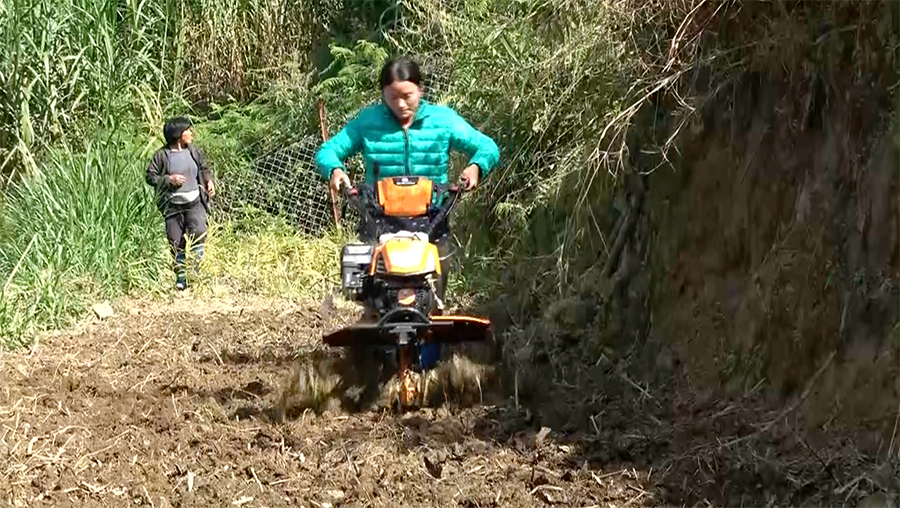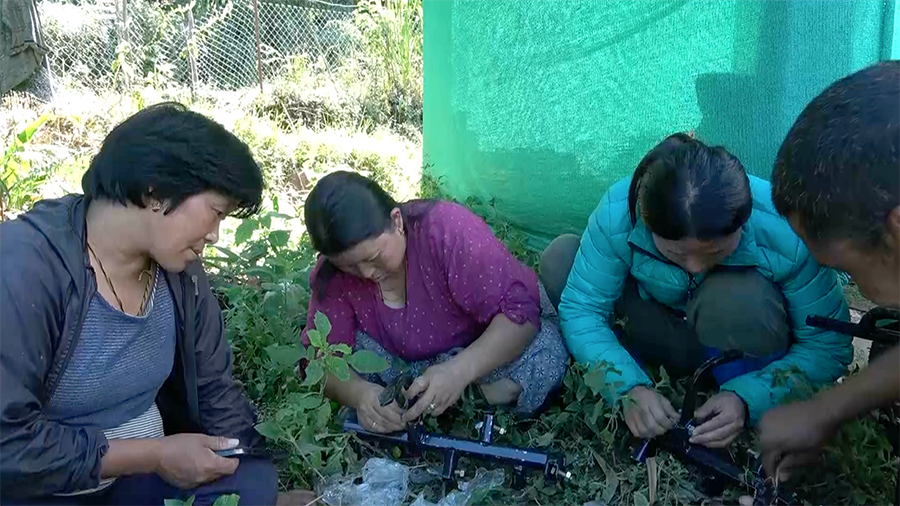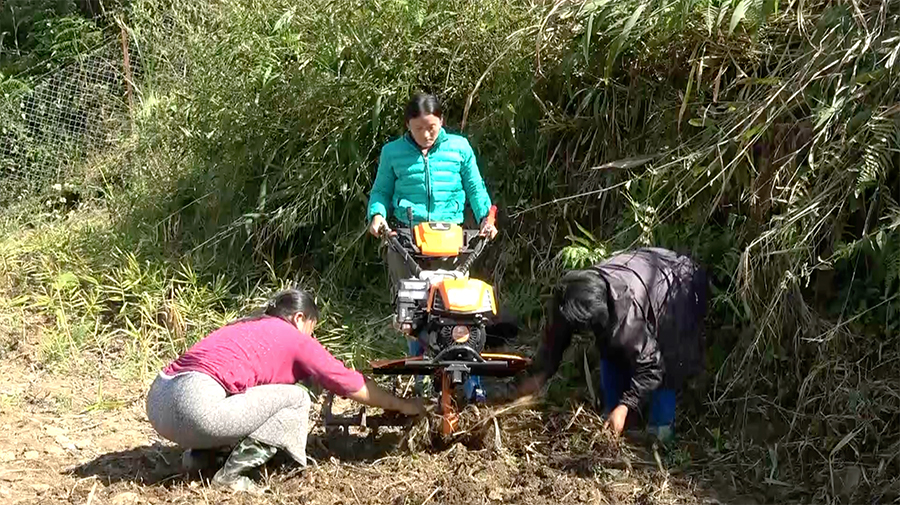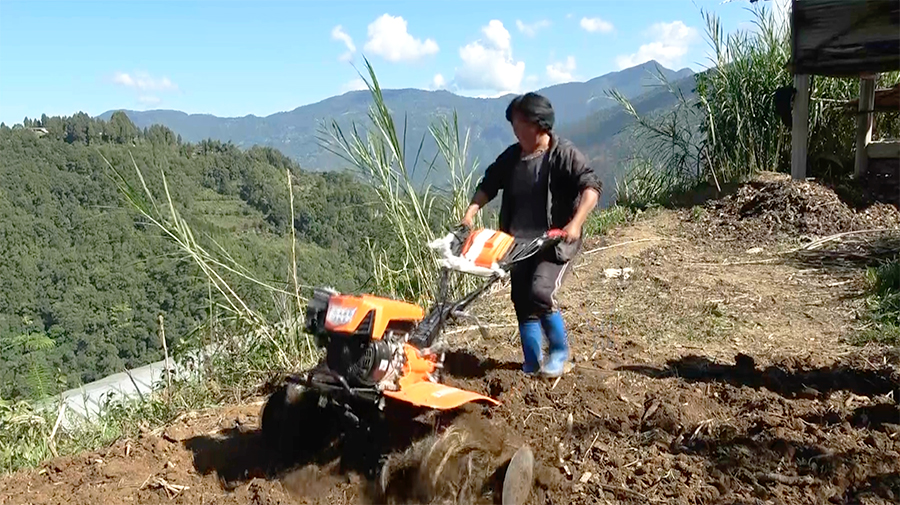 With the declining population in remote areas and the growing shortage of farm labour, reliable mechanisation has become essential. The supply of mini power tillers provided through a cost-sharing scheme with support from the CARLEP project has brought newfound hope to women who continue to stay back and work their fields.
With the declining population in remote areas and the growing shortage of farm labour, reliable mechanisation has become essential. The supply of mini power tillers provided through a cost-sharing scheme with support from the CARLEP project has brought newfound hope to women who continue to stay back and work their fields.
 These are the women of Phadi village in Khar Gewog in Pema Gatshel. They are fitting the rotator onto a mini power tiller to plough their fields. Since these machines are user-friendly and light, women no longer have to wait for men to operate them. As seen here, the machine is being handled with ease by the women themselves.
These are the women of Phadi village in Khar Gewog in Pema Gatshel. They are fitting the rotator onto a mini power tiller to plough their fields. Since these machines are user-friendly and light, women no longer have to wait for men to operate them. As seen here, the machine is being handled with ease by the women themselves.
 “Earlier, we used to hire around 9 to 10 labourers for farm work. Now, after receiving this mini power tiller, our work has become much easier. At first, I faced some difficulty operating it, but now I can manage it well after learning from our agriculture extension official,” said Karma Wangmo, Phadi, Khar Gewog, Pema Gatshel.
“Earlier, we used to hire around 9 to 10 labourers for farm work. Now, after receiving this mini power tiller, our work has become much easier. At first, I faced some difficulty operating it, but now I can manage it well after learning from our agriculture extension official,” said Karma Wangmo, Phadi, Khar Gewog, Pema Gatshel.
Similarly, Dorji Wangmo shares the same experience. According to her, these machines have arrived at the right time. They are not only women-friendly but are also expected to boost farming activities in the village.
“I was scared at first, especially when turning the machine. But now I can handle it. Earlier, we had to hire 4 to 5 labourers to cultivate this land. But today, we cannot even find workers easily, as many young people leave the village after their studies. As farmers, we must continue our livelihood, and this machine truly helps us,” said Dorji Wangmo, Phadi, Khar Gewog, Pema Gatshel.
 Five mini power tillers have been supplied to Khar Gewog, and the district has received 80 mini power tillers this year through the CARLEP cost-sharing scheme.
Five mini power tillers have been supplied to Khar Gewog, and the district has received 80 mini power tillers this year through the CARLEP cost-sharing scheme.
According to farmers, continued government support in providing such machines will further encourage farming, as they greatly reduce both labour needs and expenses.
Thinley Dorji, Pema Gatshel
Edited by Tandin Phuntsho








